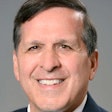
Internet search giant Google put an end to its foray into healthcare by announcing the shutdown of its widely publicized Google Health personal health record service. Google said that the service is being terminated effective December 31.
Aaron Brown, senior product manager of Google Health, wrote on June 24 on the Google Blog that the online service was not having the broad impact that the company expected.
"There has been adoption among certain groups of users like tech-savvy patients and their caregivers, and more recently fitness and wellness enthusiasts," he wrote. "But we haven't found a way to translate that limited usage into widespread adoption in the daily health routines of millions of people."
Individuals with data on Google Health will have until January 1, 2013, to remove the information, according to Brown. The company will also add the ability to transfer health data to other services that support the Direct Project protocol, an emerging open standard for efficient health data exchange.
Google Health founder Adam Bosworth, when asked about the success of both Google Health and Microsoft's HealthVault in an interview with Erick Schonfeld of TechCrunchTV on June 3, said that neither service was dramatically successful. Regarding Google, he said that, in part, it did not push to see what it could provide that people really wanted. It basically just offered people a place to store data, he said.
Sean Nolan, the "family health guy" who contributes to the official Microsoft blog website, disagrees regarding HealthVault. "HealthVault is indeed alive and kicking," he wrote. "Everybody here is seeing a real uptick in momentum. Our recent mobile and imaging announcements have kicked off a ton of new innovation. Meaningful use-based innovation is heating up ... we have more and more HealthVault-connected patient portals coming online."
The Google Health team has been working with Microsoft HealthVault to ensure that migrating patient data is as simple and painless as possible, Nolan, an engineer with the Health Solutions Group, also stated. His post explains how to migrate data.
NoMoreClipboard, which also offers a Web-based personal health record service, expressed regret that Google Health was exiting the market at a time when "patient engagement is gaining traction."
"NoMoreClipboard is on track to more than quadruple its revenues and add several hundred thousand new users this year," Jeff Donnell, the company's president, stated in a press release.
Google Health users can create a free NoMoreClipboard account and transfer their data to it. Like Microsoft HealthVault, NoMoreClipboard supports the acquisition of radiology images.



















